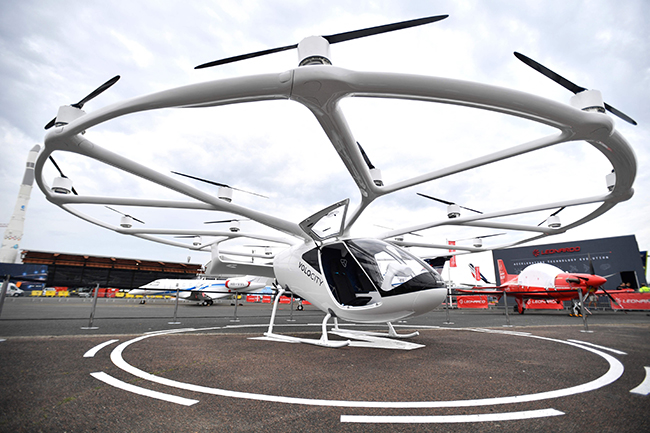PARIS (AFP) – The Paris Air Show opens Monday after a four-year break with the aerospace industry bouncing back from the COVID-19 pandemic but under pressure to slash its carbon footprint.
Organisers have billed the biennial event as the “recovery airshow” after the coronavirus ravaged the sector and saw the event cancelled in 2021.
The aerospace industry is flocking back to Le Bourget airport outside Paris, as aircraft makers field hundreds of orders and airlines brace for a near-record number of passengers this year.
Russia’s war in Ukraine has also led countries to step up military spending, which could benefit aerospace defence firms.
Le Bourget offers a forum to announce deals with some 2,500 firms lining up to show off their latest planes, drones, helicopters and prototypes such as flying taxis.
Airbus chief executive Guillaume Faury, who heads France’s aerospace industry association GIFAS, called it “the return of the good old times of the excitement of the show”.
With 125,000 square metres of exhibition space – the equivalent of nearly 18 football pitches – around 320,000 visitors are expected during the week-long event.

Along with the Farnborough airshow in England, which takes place in even numbered years, Le Bourget is a key sales event for the civil and defence industries.
Airbus and rival Boeing compete fiercely in announcing orders for aircraft running into the billions of dollars.
At least 158 planes, helicopters and drones will be on display, from the latest long-haul commercial jets to the F-35, the latest US stealth fighter.
The United States will have a strong presence with 425 exhibitors, bolstered by renewed interest in military equipment in the aftermath of Russia’s invasion of Ukraine.
Firms from 46 other nations will be present, but not under-sanctions Russia.
China, which lifted COVID restrictions only at the beginning of this year, will also be represented.
However, China is not displaying its first home-grown medium-haul passenger jet, the C919, built to compete with the Airbus A320neo and Boeing 737 MAX.
The airshow also hopes to open a window into the future as projects for flying taxis and other vertical takeoff aircraft abound.
Several prototypes will be on display as part of a “Paris Air Mobility” exhibition to showcase the latest innovations that developers hope will change how people travel.
French President Emmanuel Macron will inaugurate the airshow after announcing on Friday USD2.2 billion to help develop technologies to reduce aircraft emissions.
Air travel accounts for nearly three per cent of global CO2 emissions but serves only a small minority of the world population.
With the industry targeting net zero emissions by mid-century, firms are turbocharging efforts to achieve it.
The initial focus is on sustainable aviation fuels (SAF), made from sources such as municipal waste, leftovers from the agricultural and forestry industry, crops and plants, and even hydrogen.
But companies are also working to develop battery- and hydrogen-powered aircraft.


